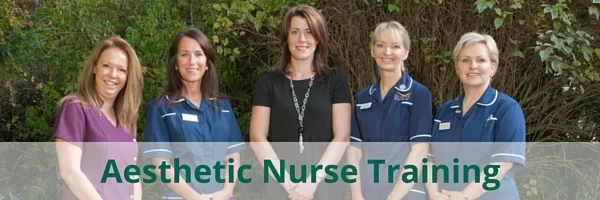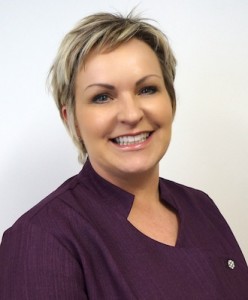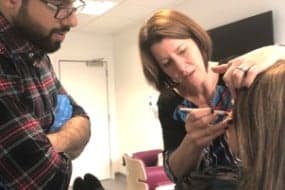Posts
Botox® Training for Medical Professionals
Whether you are looking to kick-start your career in aesthetics or wanting to build your personal development and professional skills, try our award-winning Botox® training for medical professionals. We offer our foundation course to surgeons, doctors, nurses and dentists who have an up to date registration.
As an established training provider for over 16 years, Cosmetic Courses has trained over 6000 professionals in Botox ® and dermal filler techniques, supporting them to set up their own successful clinics.
Benefits of Enrolling on Botox® and Dermal Filler Training
Botox® and dermal fillers demand is increasingly high, showing to be a beneficial area to train in. The majority of UK cosmetic treatments undergone are non-surgical, so you’ll be entering into a thriving industry that’s set to grow even larger. Our highly qualified team provide all the training and support required, offering their expertise and advice to guide you on your journey into aesthetic medicine.
Benefits include:
- Gain the skills and confidence to enter aesthetic medicine
- Become your own boss and work flexible hours
- Have more control over your career and future
- Provide the care you want to give – including spending more time with patients
- Enjoy fewer regulations than when working in the NHS
- Receive your professional certification at course completion
- Unlimited support and aftercare are available for both your clinical needs and business
We’ll help you to become fully equipped to forge the career you want in non-surgical cosmetic treatments and aesthetics, whether as a surgeon, nurse, doctor or dentist.
Why Choose Our Botox® and Dermal Filler Training Course?
Combining both practical skills and business knowledge, our popular Botox® and Dermal Filler Course can help you begin to build a career in aesthetics. Our Botox® Training for Medical Professionals will introduce you to basic dermal filler and Botox® treatments (Juvederm and Allergan Botox®) which are highly sought after in the industry, giving you the foundation knowledge you’ll need.
Training involves:
- A one day course
- Interactive training in small groups
- Led & supervised by an expert trainer
- Practical, hands-on training for dermal filler and Botox injections using live models
- Fully functioning clinic environment
- CPD certificate provided on successful completion
- Held in a number of locations (Belfast, Buckinghamshire, Leeds, Birmingham, Nottingham and London)
- Starter kits and supplies available to purchase or order upon completion
You’ll learn everything from facial anatomy and injection techniques to aftercare and how to market your own practice. The CPD certificate you receive is insurance company recognised (we partner with leading aesthetic insurance companies), allowing you to practice the techniques you’ve learned straight away once you have the right insurance in place.
Continue Your Aesthetics Training
You can choose to build on your aesthetics training later on, including our Foundation Follow on Day, bespoke one-to-one course, introduction to lip augmentation and Level 7 Qualification in Injectables (the foundation course is Part 1 of this).
Thousands of medical professionals have put their trust in us thanks to our renowned expert faculty at Cosmetic Courses. A hand-picked team from all different medical backgrounds chosen by Medical Director and Consultant Plastic Surgeon, Mr Adrian Richards.
Book Your Botox Training Course Now
If you’re looking for the right dermal filler and Botox training for medical professionals, book our course now.

Are you a nurse looking for a new direction? Still keen to keep using your practical and personal skills to change people’s lives?
There could be a home for you in aesthetic nursing.
The aesthetic industry is booming – and the non-surgical side in particular. Demand for non-invasive aesthetic treatments is now growing faster than cosmetic surgery.
And nurses have been at the forefront of the aesthetic revolution. They’ve been treating and caring for aesthetic patients since the early 1980s.
There are over 4,000 Aesthetic Nurses currently practising in the UK. So how do you go about joining them?
Aesthetic Nurse training – the requirements
 While a minority of Aesthetic Nurses work in cosmetic surgery, most work on the non-surgical side.
While a minority of Aesthetic Nurses work in cosmetic surgery, most work on the non-surgical side.
Either based in clinics or self-employed in their own practices, they offer treatments like cosmetic injectables (Botox, dermal fillers), skin peels, sclerotherapy and medical micro-needling.
The most popular treatments by far are injectables. So if you’re serious about becoming an Aesthetic Nurse, you’ll need to pursue training in Botox and dermal fillers.
As long as you’re a Registered Nurse with current registration with the NMC, you’re eligible to train in the use of Botox and fillers.
Training can be completed in one day, and will qualify you to offer both Botox and filler treatments to your own patients.
But bear in mind that Botulinum Toxin is a prescription-only medicine. So unless you’re a Nurse Prescriber, you’ll always need to work with someone else who can prescribe it.
For that reason, we’d recommend your Aesthetic Nurse training also includes an Independent Nurse Prescriber Course. These are offered on a part-time basis at colleges and universities and can usually be completed in around 4 months.
Being able to prescribe Botulinum Toxin, as well as administer it, will make you a valuable asset to potential employers. It’ll also make it easier to set up and run your own business further down the line.
Other Aesthetic Nurse training options
Once you’ve trained in Botox and fillers, you’re ready to start practising as an Aesthetic Nurse. But in time, you’ll probably want to be able to offer more treatments to your patients.
You can add more to your repertoire at your own pace, as and when you’re ready. It’s simply a case of deciding which treatments you’d like to offer your patients, and completing the appropriate course.
Most non-surgical treatments only need a one-day course, letting you get up to speed very quickly. At Cosmetic Courses, we offer a wide range of one-day courses, including Microsclerotherapy, Chemical Peels, Dermaroller and Platelet Rich Plasma Therapy.
You might also want to consider advanced Botox and dermal filler courses to learn more specialist techniques like chemical brow lift and peri-oral sculpting.
Whatever you choose to learn on your Aesthetic Nurse training journey, it’s a great time to get on the aesthetics learning curve.
If the UK market keeps growing (and with an increasing – and ageing – population, it seems likely), you can expect to carve out an extremely rewarding career, both financially and professionally.
Find out more about Aesthetic Nurse training
Cosmetic Courses are the UK’s most established aesthetic training provider, with centres in Buckinghamshire, London, Kent, Birmingham and Manchester.
To date, we’ve trained over 3,000 nurses and other medical professionals to administer safe, effective treatments to their patients. Want to find out more about our Aesthetic Nurse training courses? Give us a call on 01844 318317 or email [email protected].
It’s a multi-million pound industry and it’s still growing. The world of aesthetics is attracting ever more doctors, dentists, surgeons and nurses for a variety of reasons.
If you’re a nurse thinking about making the move into aesthetics, read on to find out what it could mean for you.
Why consider Botox training for nurses?
> 1. Better earning potential
It’s fair to assume that if you’re a nurse, you probably didn’t go into the profession with money in mind. Nursing is a vocation, and you have to be pretty dedicated to make it your career.
But while money certainly isn’t everything, it ultimately gives you much more freedom to do the things you want to do in life.
Hour for hour, working as an Aesthetic Nurse Practitioner (whether self-employed or working for a clinic), pays significantly more than working as a Bank Nurse in the NHS.
Training in Botox and other aesthetic treatments allows you to either supplement your income from nursing, if you want to stay in the profession, or to pursue a much more lucrative aesthetic career.
> 2. Work-life balance
Working as a nurse in the NHS is extremely demanding and often very stressful. The rigours of the job mean that invariably, it’s sometimes hard to leave work at work. Many nurses find it very difficult to switch off and enjoy their free time as much as they could, which can take a huge toll and often lead to feelings of ‘burn out’.
Aesthetics, while no less hands-on, is far less demanding emotionally. You perform a treatment, your patient goes away happy – but even if they aren’t 100% happy, any problems can usually be rectified. This difference makes it far easier to enjoy your down time and maintain a healthy work-life balance, without dwelling on the stresses of the day.
> 3. Greater security and flexibility
Becoming a qualified Botox practitioner gives you the opportunity to piece together the career you want, as well as making you less vulnerable to the vicissitudes of a fickle economy – and assaults on your NHS pension pot.
Taking one of our Botox courses for nurses will give you options. You might want to split your time between nursing and aesthetics to give yourself more variety. You might just want a break from nursing for a while. Or it could be that you’re ready for a complete career change.
Training in Botox and other aesthetic treatments will give you lots more strings to your bow. You can set up your own business and be your own boss, work for a clinic at weekends alongside your nursing work, or look for employment as a full-time aesthetician.
Whatever happens in the economy, you’ll be far better equipped to adapt to changing circumstances and weather the storm.
Cosmetic Courses are the leading UK provider of Botox training for nurses. We offer nurses Botox courses in Buckinghamshire, Manchester, Birmingham and Kent. For any more information on any of our aesthetic training courses, please call the team on 01844 318317 or email [email protected].
Since 2002, Cosmetic Courses have helped thousands of Nurses to carve out exciting new careers in aesthetics.
Are you a qualified Nurse looking for more variety in your work? How about boosting your earning potential?
Both are within your grasp. The only thing standing between you and an exciting new lifestyle is one of our Botox courses for Nurses!
This week, we chat to qualified Nurse, passionate aesthetician and Cosmetic Courses trainer Mel Recchia about her move into aesthetics…
Hi Mel, how easy was your decision to move from nursing into aesthetics?
In my case, it wasn’t something I carefully planned. Like all the best things in life, it was quite spontaneous! I’d been a Beauty Therapist before I became a Nurse, so that interest in cosmetic medicine was always there.
I loved working as a Nurse in A&E, but after 9 years I started thinking it was time to expand my horizons. Because of my background in beauty, aesthetics was the natural choice.
What do you enjoy most about aesthetics?
I get a huge amount of satisfaction from making people feel better about themselves. I know some people think aesthetics is superficial or frivolous compared to nursing, and I understand that, but when you improve something that’s making someone unhappy, you’re impacting their life in a way that goes beyond beauty.
So you’re almost a kind of therapist?
Almost, yes! You often find yourself being a kind of confidante to your patients. People trust you, and they share their problems with you. They leave with their self-esteem boosted and a spring in their step. For me that’s the most rewarding part of what we do.
Bit of a cheeky one – do you have any aesthetic treatments yourself?
Of course – it’d be rude not to! I’ve had Botox for about 10 years, and I like to have skin peels and microdermabrasions when I can. I’m also a big fan of skincare products to maintain results, and last year I tried a bit of Sculptra in my mid-face which has been great. I’m also thinking about taking the plunge and getting my upper eyelids done next year!
What would you say to someone thinking about taking one of our Botox courses for nurses?
It really is a route into a new lifestyle. Aesthetics lets you use your medical skills and maintain the patient contact you’re used to, but with more flexibility and freedom.
As a self-employed Aesthetic Nurse, you get to choose how much and when you want to work, and you make your work fit around your life rather than the other way round.
In a nutshell, training in Botox will open the doors to lots of new opportunities – so go for it!
Find out more about our Botox courses for nurses
Cosmetic Courses offers a wide range of aesthetic training for medical professionals, including accredited dermal filler and Botox courses for nurses. To find out more about training with us, please call us on 01844 390110 or email [email protected].
It’s important for every practising medical aesthetic professional to undertake training to administer Botox and fillers, though it may be that a refresher course along the way could also prove useful.
How do you know if you could benefit from it? If you have worked in the aesthetics industry but have taken a break from it recently, the chances are that a refresher course will be the right course of action for you.
It may be that you have left the profession for a maternity break, or perhaps moved temporarily to another specialism. In which case it will not only help to brush up on techniques but will be vital in restoring any confidence that may have been lost as a result of absence from the industry.
It can also provide a worthwhile exercise for those who have not had a break from the profession, if not just to compare techniques with others but also learn any newer ideas with regards how to administer such treatments. It may simply provide a fresh way of looking at procedures, or how to get the very best out of them.
Cosmetic Courses offer Botox training and refresher courses to medical professionals, including doctors, dentists and nurses. For more information, contact the team on 01844 390110.
There is an ongoing discussion within the medical industry right now about who should be able to perform non-surgical cosmetic procedures such as Botox, chemical peels and fillers. Popular opinion amongst senior medical staff, as well as industry bodies, is that practitioners should be appropriately qualified medical professionals, Nurses in Aesthetics.
opinion amongst senior medical staff, as well as industry bodies, is that practitioners should be appropriately qualified medical professionals, Nurses in Aesthetics.
As a result, procedures such as Botox may have to be performed by a doctor, nurse or dentist. Additionally there are calls that such professionals should be qualified in the area they want to practice specifically. Due to this popular way of thinking now may be a good time for nurses to consider branching out in to the cosmetic arena.
Nurses typically make great candidates for practitioners of non-invasive cosmetic procedures. Nursing not only has a nurturing aspect to it, but relies on attention to detail and has a number of transferable skills, for example administering injections. Add to this the increasing strain on NHS nurses with tumultuous working conditions and possible pay and pension changes and a switch to the cosmetic field can be an attractive proposition.
Often such a switch will result in better working conditions, more sociable hours and possibly better pay. Because of these factors it’s possible that such a shift is already starting to happen, with more and more nurses registering for courses in medical aesthetics.
Are you a nurse considering a move into the aesthetics field? Find out more about Botox training course options for nurses.
Report by Libby Stewart, Cosmetic Courses Trainer
The on-going training of our professional team is very important to us here at Cosmetic Courses.
In order to keep delivering the best to our delegates, trainers Libby Stewart and Ruth Atkins yesterday attended a day on skin health and diagnosing and treating acne and rosacea
The meeting was organised by the British Association of Cosmetic Nurses, a professional organisation of which the girls are both members. One of the aims of the BACN is to ensure that nurses in the aesthetic industry are well informed and well educated in the latest techniques and treatment methodology.
The course was held in the prestigious setting of the Wellcome Foundation and was hosted by Galderma. Galderma are one of the leading producers of presciption medicines relating to skin health as well as manufacturing Azzalure, a brand of wrinkle relaxing injectable medicine.
This is therefore very valuable background knowledge regarding skin contraindications, not just for nurses on our botox training courses but all medical professionals attending Cosmetic Courses medical aesthetic training. Look out for a detailed report from Libby Stewart about treating clients with acne and rosacea, coming soon on the Cosmetic Courses blog!
Advanced Medical Aesthetic Training
So you have completed your Foundation Level Introduction to Botulinum Toxin and Dermal Fillers. You’ve gone away and practiced all you learned and now you’re chomping at the bit to discover more techniques, right?
An Advanced Cosmetic Training Course is the ideal way to pick your basic skills up a level and add procedures like Cheek Sculpting, Platysmal Bands, Brow Lift and Hyperhidrosis to your repertoire. In this Blog, we will discuss the Brow Lift.
Brow Lift Treatment
As we age, gravity causes the eyebrows (brow) to move downwards. We compensate for this by contracting the muscle which raises the eyebrows. Contraction of this muscle causes wrinkle lines across the forehead. Eventually the muscle relaxes and the eyebrows become lower. This typically makes you look slightly sad and tired. It can also increase the fold on the upper eyelid making it difficult to apply makeup.
Brow lift treatments are aimed at elevating the eyebrows. This widens the eyes and makes you look less tired. After surgery people are often asked if they have been on holiday as they look refreshed. The effects are subtle and most people will not be able to pinpoint the exact change in you but will notice that you look fresher.
The eyebrow in females should be gently arched with its’ highest point lying 2/3rds of the way out from the centre. In men the eyebrows are usually flatter and raising them is not usually appropriate as this can make them look slightly surprised.
In the past, the only satisfactory way to perform Brow lifts was with a surgery operation. This procedure is normally carried out by keyhole surgery. Small incisions are made within the hairline and the tissue is gently separated allowing the eyebrows to rise. Most people recover quickly from the procedure and are back at work within 10 days.
Brow Lift Injections
More recently, however, medical aesthetic injection techniques have been used to lift the eyebrows. Selectively weakening the muscles which pull down the eyebrows (using Botulinum Toxin) will result in them rising. The muscles which pull down the inner part of the eyebrows cause frowning in the centre of the forehead. The muscles which pull down the outer part of the eyebrows cause the crows-feet smile lines which occur on the temple on the side of the eye.
Unlike surgery, injections to weaken these muscles can be performed as a quick and easy outpatient procedure. Many people have the treatment during work breaks or at the end of the day. The effects are not immediate with most people noticing a gradual decrease in the frown and crows feet wrinkles a week following treatment. This effect last between 4-6 months and will need to be repeated. Usually after a 3 treatments in a year the muscles relax more permanently and the effect last for longer and longer.
It is important to remember that everybody’s face is different and the consultation process is important to assess which treatment is most suitable for your patient. This should ideally start with a skin analysis and discussion of the treatments available.
If you are interested in learning Brow Lift injectable techniques and other Advanced Medical Aesthetic Techniques, call Cosmetic Courses Training on 0800 328 5743. Alternatively, you can learn more about our advanced level training on our website.
Question:
Dear Cosmetic Courses,
Can you go on holiday to a very hot country 4 days after receiving Azzalure treatment?
The product information says to avoid direct sunlight for a week: how necessary is this and do you have any reassuring advice or tips for patients?
Cosmetic Courses Answer:
Thank you for your really good question about whether you can use Azzalure and then the patient go off on holiday.
Our general advice is that it should be absolutely fine. At Cosmetic Courses, we do get asked questions about people going up in planes following Azzalure treatment but this isn’t really a problem: lots of air stewardess’ have Botox and Dermal Filler treatments.
Regarding sunshine exposure on the small incisions where the needle went in, again we would advise that this is fine but we would advise patients to wear a Clinical-strength sunblock (Cosmetic Courses recommend the Heliocare range for maximum protection) on their face, which they should be doing anyway if they are going to a warm country.
Overall, not a problem at all performing Azzalure on people that are going abroad 4 days later: it is quite commonly performed. Sunblock is a good idea but in the first 74 hours following Azzalure treatment we encourage them to refrain from anything that raises their blood pressure too much, so travelling immediately after the injection wouldn’t be ideal.
Thanks very much for for sending in such an interesting Frequently Asked Question.
The Cosmetic Courses Team
If you are a medical professional interested in training to treat patients in Azzalure, Cosmetic Courses are one of the top UK medical aesthetic training providers. Contact us on 0845 230 4110 to discuss your training with our helpful team.
Or, if YOU have a question you would like our team of experts to answer, why not call our 24/7 Sipgate Helpline on 0870 4907385 for a personalised answer like the one above!
Cosmetic Courses
Business Info
Registered Address – Cosmetic Courses, Summerleys Road, Unit E3 Regent Park, Princes Estate, Princes Risborough, HP27 9LE








